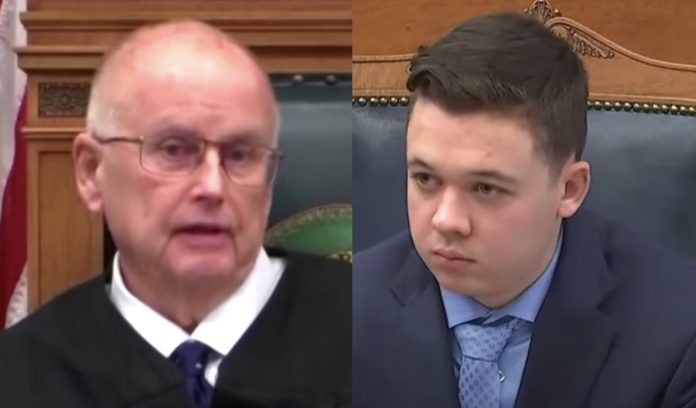OPINION | This article contains commentary that reflects the author's opinion.
It has been widely reported that the misdemeanor gun charge in the Kyle Rittenhouse trial is highly controversial and could be dropped.
The prosecution did not have proof to present to show the gun charge met all the elements of the charged statute.
The judge pressed the prosecution to offer proof that the gun was in any way short-barreled, but it wasn’t. The prosecution didn’t have any evidence to support the elements of the charge.
As a result, the judge just dismissed the gun charge.
Many lawyers and critics of the prosecution, such as commentator Ben Shapiro, have argued that the entire trial never should have made it in front of a jury because the evidence against Rittenhouse is very weak.
Under Section 948.60 and section 2a, the statute reads, “Possession of a dangerous weapon by a person under 18, any person under 18 years of age who possesses or goes armed with a dangerous weapon is guilty of a Class A misdemeanor.”
Townhall’s Nick Arama notes that the problem with the statute is subsection (c).
“This section applies only to a person under 18 years of age who possesses or is armed with a rifle or a shotgun if the person is in violation of s. 941.28 or is not in compliance with ss. 29.304 and 29.593,” the report explains.
Watch the clip:
Judge in Rittenhouse trial has dismissed Rittenhouse's gun charge. pic.twitter.com/v1x1QTBrGf
— The Post Millennial (@TPostMillennial) November 15, 2021
In reviewing the language of the statute, the judge has raised questions about it, claiming it would be hard for an “ordinary citizen” to understand what is illegal.
Under Section 948.60 and part 2a, it reads, “Possession of a dangerous weapon by a person under 18″ and “any person under 18 years of age who possesses or goes armed with a dangerous weapon is guilty of a Class A misdemeanor.”
Judge Bruce Schroeder raised the question while covering a motion filed in the case. Schroeder explained that he had “spent hours” with the Wisconsin gun law.
Despite this considerable amount of time, Schroeder still could not state with certainty what it means in this case.
This statement could effectively remove the misdemeanor gun possession count. “The unlawful possession of the gun has been a prominent fact cited not only by the prosecutors but the press,” Fox News reports.
“A close examination of that provision reveals ample reason to question not just its meaning but its application to this case,” the report adds.
George Washington University law professor Jonathan Turley noted there is also subsection (c).
“Well, you then have to look at the subsection (c), which states that ‘This section applies only to a person under 18 years of age who possesses or is armed with a rifle or a shotgun if the person is in violation of s. 941.28 or is not in compliance with ss. 29.304 and 29.593.’
“Since there is no evidence that Rittenhouse violated Section 941.28, he presumably must be in violation of both sections 29.304 and 29.593.”
“The defense conceded Rittenhouse was in violation of Section 29.593, which requires certification for weapons. However, he is not in violation of section 29.304, entitled ‘Restrictions on hunting and use of firearms by persons under 16 years of age.'”
“As the title indicates, the section makes it illegal for persons under 16 to use firearms. Rittenhouse was 17 at the time and the prosecution has not challenged that fact.”






